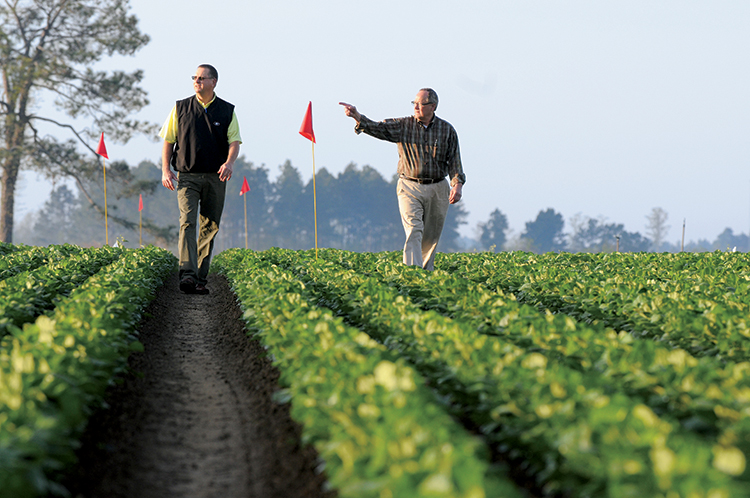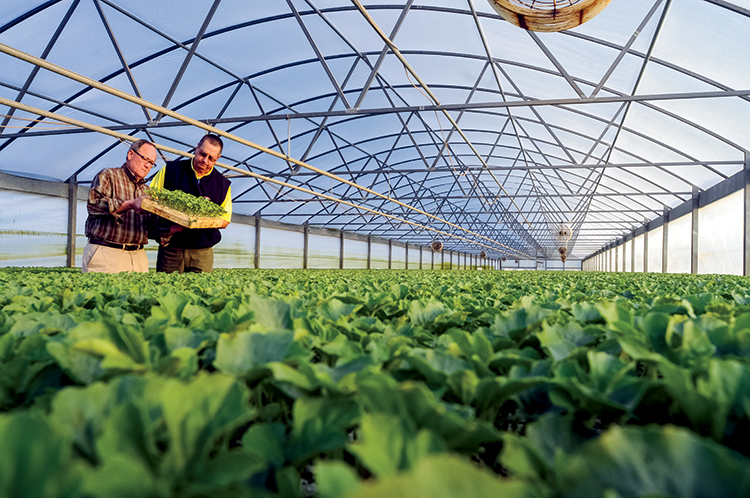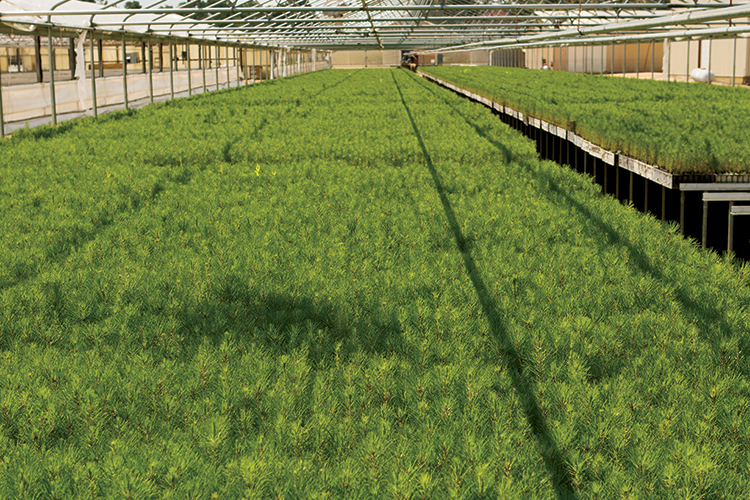Home > Georgia > Georgia Crops & Livestock > Harvesting Innovation in Georgia
Harvesting Innovation in Georgia

Chances are, if you live in Georgia, something on you’ve eaten was grown at Lewis Taylor Farms in Tifton, one of the largest and most innovative farming operations in the Southeast.
Owners Bill Brim and Ed Walker incorporated modern technology and new techniques into their diversified specialty crop farm, including hydro-cooling and food safety strategies.
They also have an expanding greenhouse operation that produces 210 million vegetable transplants and 57 million pine tree seedlings annually, making it one of the largest producers of pine tree seedlings in the country.
Like most farmers, they’ve had some tough rows to hoe.
“I had been working since 1972 for my father-in-law and his father, both of whom were exceptional mentors,” Brim recalls, noting that Walker joined the business in 1975.
Brim says he always knew he wanted to be a farmer, and he was pushed along the way by his older sister, a math teacher who was “hell-bent on me getting a good education,” and his high school FFA instructor.
“When we bought the business in 1985, it was a bare-root transplant business, selling 300 million plants a year,” Brim says, noting that two years after we bought the farm, we lost most of it because of the invention of the carousel planter that would not plant a bare-root plant. So we had to turn our business into a row crop and greenhouse operation.”
Today, with more than 5,000 acres of row crops, including 600 acres of cotton and peanuts, Lewis Taylor Farms supplies vegetables to grocery store chains, including Kroger and Food Lion.
Brim and Walker have to react quickly to changing weather and changing palates. The drought in California meant an increase in the production of different lettuce varieties and other winter and early spring crops to meet demand, and the country’s new interest in kale as a healthy vegetable instead of a garnish created the need for more acres to be planted in the leafy green.
“In 2012, we had 25 acres planted in kale,” Brim says. “Last year, we planted 130 acres.”

Advanced Processes
The hydro-cooling operation was something Brim and Walker picked up from Texas corn farmers. Melons are picked and placed immediately into a water bath, bringing the internal temperature down to 45 degrees; cabbages and greens are placed by pallets in a clamshell with ice over the top.
“The cooling process really extends the shelf life,” Brim says. “It allows us to pick, cool, pack and ship right away.”
Working with Dr. Stanley Culpepper, a University of Georgia Extension weed scientist, the partners are leaders in identifying and implementing safe pest control practices.
“Food safety is a big issue for us. The safety of our produce is the most important aspect of our operation,” Brim says. “As growers, we want to do the right thing; we don’t want anyone to get sick from eating vegetables grown on our farm, and we do everything we can to make sure our produce is safe.”
Those safety concerns pose a challenge because farms are audited by several different agencies at any given time, and there currently isn’t a uniform system of food safety in place. Brim has been working with other farmers and agencies to put together a food safety matrix that will be more effective.
Economic Generator
An operation as large as Lewis Taylor Farms is a strong economic generator, with considerable investment in new machinery and innovations and the hundreds of jobs that are created. The farm’s full-time employees, including directors of food safety, the greenhouses, the field crew, maintenance and manufacturing staff, are augmented by seasonal employees.
“We have a good operation with people who have great talent and don’t mind working,” Brim says. “We’ve worked hard, and we’ve expanded and grown. We’ve looked at new things, finding niche markets for new products and staying on the cutting edge.”




